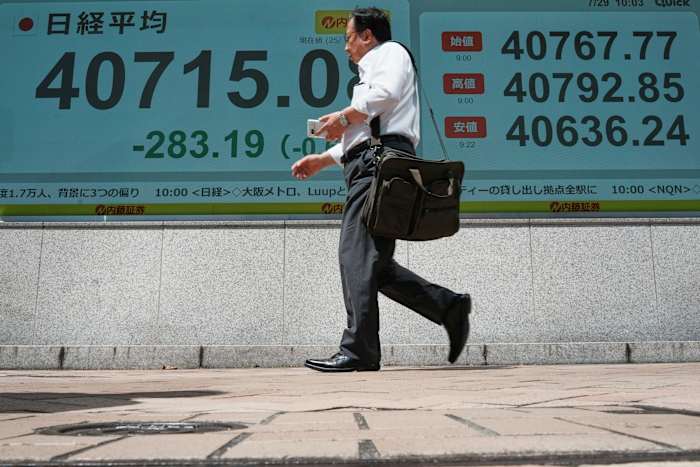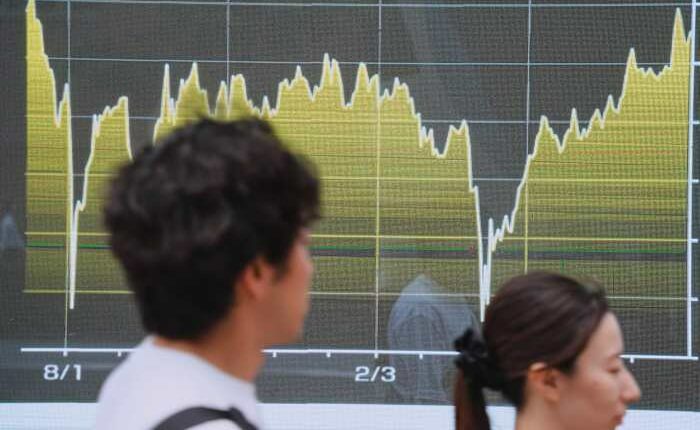Share this @internewscast.com

TOKYO – On Wednesday, Asian markets mostly experienced gains in a subdued trading environment. This followed signals of economic trouble in the U.S. that led to declines in Wall Street stocks.
Investors are currently analyzing numerous corporate earnings reports to gauge the potential impact of U.S. President Donald Trump’s tariffs on businesses.
This week, several major Japanese companies, including automakers Honda Motor Co. and Toyota Motor Corp., along with electronics and entertainment giant Sony Corp., are expected to release their fiscal first-quarter results.
Japan’s Nikkei 225 index increased by 0.6% to 40,777.45. In Australia, the S&P/ASX 200 grew by 0.6%, reaching 8,822.90. In contrast, South Korea’s Kospi fell by 0.3% to 3,187.57. In Hong Kong, the Hang Seng rose by 0.2% to 24,947.57, while China’s Shanghai Composite saw a 0.3% rise to 3,627.54.
U.S. futures were up 0.3%.
On the previous day, the S&P 500 declined by 0.5% to 6,299.19, following a volatile period of contrasting performances. The Dow Jones Industrial Average slightly decreased by 0.1% to 44,111.74, and the Nasdaq composite dropped by 0.7% to 20,916.55.
The release of a weaker-than-expected report regarding U.S. business activity in service sectors such as transportation and retail increased concerns that Trump’s tariffs could be negatively affecting the economy. However, these factors also sparked hopes that the Federal Reserve might consider lowering interest rates. Coupled with numerous strong profit reports from U.S. companies, such hopes have helped mitigate the stock market losses. The S&P 500 remains just 1.4% shy of its all-time high.
The pressure is on companies to report bigger profits after the U.S. stock market surged to record after record from a low point in April. The big rally fueled criticism that the broad market had become too expensive.
For stock prices to look like better bargains, companies could produce bigger profits, or interest rates could fall. The latter may happen in September, when the Fed has its next policy meeting.
Expectations have built sharply for a rate cut at that meeting since a report on the U.S. job market on Friday came in much weaker than economists expected. Lower interest rates would make stocks look less expensive, while also giving the overall economy a boost. The potential downside is that they could push inflation higher.
Treasury yields sank sharply after Friday’s release of the jobs report, and they haven’t recovered. The yield on the 10-year Treasury eased to 4.19% from 4.22% late Monday and from 4.39% just before the release of the jobs report. That’s a significant move for the bond market.
In energy trading, benchmark U.S. crude rose 41 cents to $65.57 a barrel. Brent crude, the international standard, added 42 cents to $68.06 a barrel.
In currency trading, the U.S. dollar dipped to 147.34 Japanese yen from 147.61 yen. The euro cost $1.1583, up from $1.1579.
___
AP Business Writer Stan Choe contributed.
Copyright 2025 The Associated Press. All rights reserved. This material may not be published, broadcast, rewritten or redistributed without permission.












